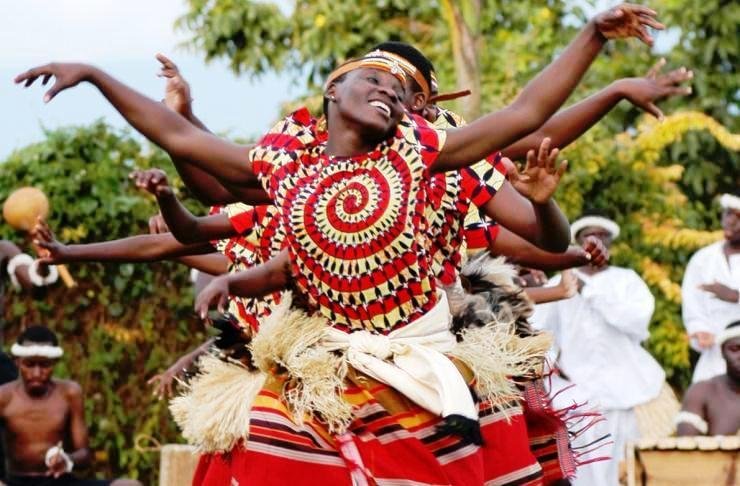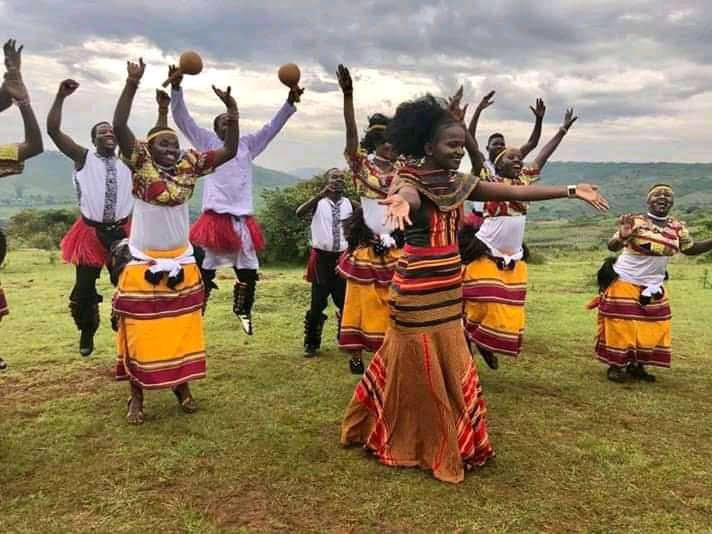People & Culture
The Baganda Culture of Uganda
Published
3 years agoon
By
M N Ridwan
The Baganda culture of Uganda is one of the most vibrant and rich cultures in East Africa.
The Baganda people, also known as the Baganda, are the largest ethnic group in Uganda and make up over 18% of the country’s population. The Ganda culture is steeped in tradition and is an integral part of Ugandan society, shaping its history and shaping the lives of its people.
The Baganda people have a rich oral tradition that has been passed down from generation to generation, preserving the history and customs of their ancestors. The oral tradition includes stories, songs, and dances that celebrate Baganda’s rich cultural heritage. These traditions are often performed during special celebrations, such as weddings, and are an important part of maintaining the cultural identity of the Ganda people.

One of the most important cultural events for the Baganda people is the Kabaka’s (King’s) Birthday, which is celebrated every year in June.
During this celebration, the Kabaka visits various parts of the Kingdom and meets with the people, who come to pay their respects and offer gifts. The day is marked by traditional songs, dances, and feasting, and is a time for the people to come together and celebrate their cultural heritage.
The Baganda people have a rich tradition of music and dance, with a wide variety of instruments being played, including drums, xylophones, flutes, and lutes. The dances performed are often highly stylized and are an important part of the Ganda cultural heritage.
The dances often tell stories of the ancestors and their struggles and are performed to celebrate important events in the lives of the people.
The Baganda people are also known for their elaborate regalia and dress, which is steeped in tradition and has a deep cultural significance. The regalia and dress are often worn during special celebrations and events and are used to symbolize the cultural identity of the Baganda people. The headgear worn by the Baganda people is particularly significant, with each style of headgear symbolizing different aspects of their cultural heritage.

READ ALSO: The Nzema Culture
The Baganda people are deeply religious and have a strong connection to their ancestral spirits. The spirits are believed to have the power to influence the lives of the people and are honored and revered through traditional rituals and offerings. The Baganda people also have a deep connection to the land and believe that it is sacred and should be protected and respected.
The Baganda people have a rich agricultural tradition, with agriculture being a crucial part of their economy and way of life. The Baganda people are known for their expertise in cultivating crops such as bananas, coffee, and maize, and are considered to be some of the best farmers in East Africa.
Agriculture also plays an important role in the cultural and social life of the Baganda people, with various celebrations and rituals being held to mark the different stages of the farming cycle.

The Baganda people are also known for their rich history and cultural heritage, which has been shaped by the many different empires and kingdoms that have ruled over the area.
The Baganda Kingdom was one of the most powerful and influential kingdoms in East Africa and played an important role in shaping the history of the region. The Bagaanda people are proud of their cultural heritage and take great care to preserve it for future generations.
In conclusion, the Baganda culture of Uganda is a rich and vibrant part of East African society, with a deep and abiding connection to tradition, the land, and their ancestors.
The Baganda people are known for their music, dance, elaborate regalia, and rich agricultural heritage, and are proud of their cultural identity.







